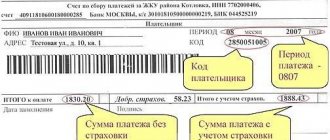Social support for donors
Federal Law dated August 22, 2004 N 122-FZ “On Amendments to Legislative Acts of the Russian Federation...” from January 1, 2005 significantly reduced the list of social support measures provided to the donor established by Articles 9-11 of the Law of the Russian Federation dated June 9, 1993 N 5142 -1 “On the donation of blood and its components” (hereinafter referred to as the Law on Donation). Article 9 of the Law on Donation now only guarantees that the donor will be provided with free food on the day of blood donation at the expense of the budget that provides financial support to the health care organization engaged in the procurement of donor blood. Additional measures of social support provided to a donor who donated blood and (or) its components during the year in a total amount equal to two maximum permissible doses, provided for in Art. 10 of the Law on Donation now includes:
- The right to receive temporary disability benefits for all types of illnesses in the amount of full earnings, regardless of work experience during the year;
- Priority allocation at the place of work or study of preferential vouchers for sanatorium treatment throughout the year.
Persons awarded the “Honorary Donor of Russia” badge now have the right to:
- for extraordinary treatment in state or municipal healthcare organizations within the framework of the Program of State Guarantees for the provision of free medical care to citizens of the Russian Federation;
- priority purchase at the place of work or study of preferential vouchers for sanatorium and resort treatment;
- provision of annual paid leave at a time convenient for them;
- annual cash payment in the amount of 6,000 rubles. in the manner established by the Government of the Russian Federation. Funds for this payment in the form of a subvention to the budgets of the constituent entities of the Russian Federation, as well as the amount of its indexation, are provided for by the federal law on the federal budget for the corresponding year (Article 11 of the Donation Law).
Why do you need a 402/у certificate?
Form 402/y confirms the fact that a person has acquired donor status. This allows him to qualify for certain benefits at the place of employment:
- on the day when the employee donates blood, attendance at work is not required; earnings for this period must be retained by the employer;
- after the date of blood donation, the employee has the right to take advantage of the second day of rest (they can be used immediately or the employer can be notified in writing about the transfer of such time off - this day must be used within one year).
It is prohibited to transfer an additional day of rest to other dates if the donor is exposed to harmful or dangerous production factors at the workplace. The ban is also relevant for those whose work involves difficult working conditions. If an employee donates blood and returns to work after this procedure, the official will not be compensated for such a day with time off. Similar explanations were provided by Rostrud in Letter No. PG/09871-03-3 dated May 19, 2017. But the right to an additional day off for the next day is not lost.
If you find an error, please select a piece of text and press Ctrl+Enter.
Guarantees and compensation to donors under the Labor Code of the Russian Federation
In accordance with Art. 186 of the Labor Code of the Russian Federation, on the day of donation of blood and its components, as well as on the day of the associated medical examination, the employee is released from work. If, by agreement with the employer, the employee went to work on the day of donating blood and its components (with the exception of heavy work and work with harmful and (or) dangerous working conditions, when the employee’s going to work on this day is impossible), he is provided with his If you wish, another day of rest. In the case of donating blood and its components during the period of annual paid leave, on a day off or a non-working holiday, the employee is given another day of rest at his request.
Note. If an employee donated blood during the period of release from work due to illness, then he is not given another day of rest. After each day of donating blood and its components, the employee is given an additional day of rest. This day of rest, at the request of the employee, can be added to the annual paid leave or used at other times during the calendar year after the day of donation of blood and its components.
The employer retains for the employee his average earnings for the days of donating blood and its components and the days of rest provided in connection with this. For all cases of determining average earnings provided for by the Labor Code of the Russian Federation, a uniform procedure for its calculation is established (Article 139 of the Labor Code of the Russian Federation). This procedure is established by the Regulations on the specifics of the procedure for calculating average wages, approved by Decree of the Government of the Russian Federation of April 11, 2003 N 213.
To calculate average earnings, all types of payments provided for by the remuneration system and applied in the relevant organization are taken into account, regardless of the sources of these payments (clause 2 of the Regulations). The average earnings of an employee, regardless of his mode of work, are calculated based on the wages actually accrued to him and the time actually worked by him for the 12 months preceding the moment of payment (Article 139 of the Labor Code of the Russian Federation, clause 3 of the Regulations).
Note. If earlier the rules of Art. 186 of the Labor Code of the Russian Federation applied only to donors who donate blood for free, then from January 1, 2005 they also apply to persons who do this on a reimbursable basis (clause 10 of Article 138 of the Federal Law of August 22, 2004 N 122-FZ). In accordance with Art. 121 of the Labor Code of the Russian Federation, days of donating blood and its components, as well as days of medical examination of employees who are donors, are included in the length of service giving the right to annual basic paid leave.
Types of certificates for donor
Such certificates can be of two types:
- donor certificate confirming the fact of blood donation;
- a certificate confirming the fact of passing the examination for donating blood.
You can be allowed to donate only if there are no medical contraindications. Therefore, before becoming a donor, a citizen must undergo examination at a medical institution.
If such an examination gives a positive result, then the citizen is allowed to donate, and after its completion, they are issued a certificate confirming the fact of donating blood.
However, the examination may also reveal contraindications, after which the employee will not be allowed to donate. Even despite this, the worker has the right to be exempt from work on this day. This is provided for by the provisions of the Labor Code of the Russian Federation (Part 1 of Article 186 of the Labor Code of the Russian Federation).
In this case, the fact of participation in a medical examination for blood donation must be confirmed. A certificate to this effect is also issued by a medical institution.
Registration of release from work
An employee who decides to donate blood must notify the employer in writing. This must be done so that the organization can find a replacement for the absent employee or adjust its activities for these days.
According to Art. 165 of the Labor Code of the Russian Federation, in order to fulfill state and public duties, which include donation, the employer is obliged to release the employee from his main job for the period of their performance. If the employer does not allow the employee to donate blood, but he still goes to donate blood, such abandonment of work cannot be considered absenteeism.
To confirm the donation of blood and its components, the employee must submit a certificate to work in form N 401/u (Order of the Ministry of Health of Russia dated September 14, 2001 N 364 “On approval of the Procedure for medical examination of a blood donor and its components”).
The form of the certificate was approved by Order of the USSR Ministry of Health dated August 7, 1985 N 1055 “On the establishment of primary medical documentation forms for the establishment of a blood service.”
But what if an employee donated blood without notifying the employer? In the event that blood donation took place during the period of annual paid leave, on a day off or a non-working holiday, the employer’s consent is not required. He will only be entrusted with the obligation provided for in Art. 186 of the Labor Code of the Russian Federation, to provide the employee with another day of rest at his request.
If the employer does not provide such a day of rest, the employee can use it independently. In this case, the donor’s absence from work will also not be considered absenteeism. In accordance with paragraph 39 of the Resolution of the Plenum of the Armed Forces of the Russian Federation dated March 17, 2004 No. 2 “On the application by the courts of the Russian Federation of the Labor Code of the Russian Federation,” absenteeism is the unauthorized use of days off and unauthorized departure on vacation (main, additional).
It is necessary to take into account that the use of rest days by an employee is not considered absenteeism in the case where the employer, contrary to the law, refused to provide them and the time the employee used such days did not depend on the discretion of the employer (for example, a refusal to provide an employee who is a donor in accordance with Art. 186 of the Labor Code of the Russian Federation, a day of rest immediately after each day of donating blood and its components).
As for the situation when an employee does not notify the employer about donating blood, but submits a certificate of blood donation only after absence from work, then formally such absence from work is considered absenteeism.
Receipt procedure
To obtain such a certificate, it is obvious that you need to donate blood. All adults, citizens of the Russian Federation who have no contraindications, have the right to do this. But practice shows that not everything is so simple. Firstly, there may be no need for blood of a certain type; accordingly, its reception may be temporarily closed. Secondly, they may be refused to accept blood due to a recent illness, visiting countries where the epidemiological threshold has been raised, or having a tattoo.
In all other cases, if a person donates blood, he will be given a corresponding certificate.
Taxation of payments to donors
Remuneration for donating blood received by a donor employee in a medical institution is not subject to personal income tax in accordance with clause 4 of Art. 217 Tax Code of the Russian Federation. The donor's income in the form of saved average earnings for the days of delivery and the days of rest provided in connection with this is included in the tax base for the personal income tax (clause 1 of Article 210 of the Tax Code of the Russian Federation), and is also recognized as an object of taxation for the unified social tax (clause 1, Article 236 of the Tax Code of the Russian Federation) and insurance contributions for compulsory pension insurance (clause 2 of Article 10 of the Federal Law of December 15, 2001 N 167-FZ “On compulsory pension insurance in the Russian Federation”).
On the average earnings paid to the donor, the organization also charges insurance contributions for compulsory social insurance against industrial accidents and occupational diseases (clause 3 of the Rules for the accrual, accounting and expenditure of funds for the implementation of compulsory social insurance against industrial accidents and occupational diseases, approved Decree of the Government of the Russian Federation dated March 2, 2000 N 184).
The costs of paying donors for the days of examination, blood donation and rest provided after each day of blood donation are taken into account as expenses for income tax purposes (clause 20 of article 255 of the Tax Code of the Russian Federation).
Blood donor certificate form
The procedure for issuing certificates by medical institutions, including donor certificates, is regulated by Order of the Ministry of Health and Social Development dated May 2, 2012 No. 441n (hereinafter referred to as the Order). According to the provisions of this order, such certificates are issued in any form (clause 10 of the Procedure approved by the Order). Must be issued on the letterhead of the medical institution or with its stamp, certified by the signature of an authorized person and seal.
In practice, medical institutions can use certificate forms approved by Order of the USSR Ministry of Health dated August 7, 1985 No. 1055. This is form 401/u, used to confirm the fact of a medical examination, and form 402/u, confirming the fact of blood donation. These documents, issued, signed and duly certified, are issued to workers for presentation at the place of work in order to confirm the absence of absenteeism, the validity of the reasons for absence from work and the provision of legal guarantees.
form 402/у
Question
Dear colleagues Question about donating blood: What should the certificate of form 402/U or 401/U, approved by the USSR Ministry of Health dated 08/07/1985, look like? No. 1055? Can 2 certificates of blood donation with different certificate numbers be issued on the same day, in the same blood transfusion institution? What stamps should be on these certificates? If an employee has been issued 2 certificates, how many days is he entitled to receive additional pay at the average salary? What is the difference between these two certificates?
Donor's medical certificate
Certificate 402/у or “donor certificate” is issued to those who donated their blood for good purposes. It is capable of giving its owner certain privileges that can be used at their discretion. If you do not have time to contact the donor center to issue such a certificate to take, for example, a day off from work, then you can issue a certificate on our website. Our specialists will draw up the document urgently; to do this, you just need to leave an application on our website. We will issue a certificate, and you will receive the right to a full day off or even several.
Why buy a donor certificate?
Certificate form 402/y, as already mentioned, is issued exclusively to donors. Receiving it opens up the following possibilities:
- the opportunity to take two additional days off from work, which will be used for recovery after donating blood. Weekends can be attached to vacation or taken at any time. It is worth noting that two free days are provided even to those who donated blood outside of working hours;
- The donor, if desired, is given compensatory nutrition to restore strength and energy. Meals can also be replaced with a monetary reward, the amount of which will be equivalent to compensation;
- cash payment – the amount of cash reward depends on the type and quantity of material submitted. It is worth noting that the amount cannot exceed 45% of the subsistence level;
- the donor can take official time off from work while donating blood. Many people take advantage of this opportunity and donate blood when they cannot negotiate time off with their bosses;
But, unfortunately, not everyone can become a donor and donate their blood; for this you need to have certain qualities and be in excellent health. Potential donors are selected based on test results; most often, about half of the volunteers are not suitable. In this case, the only way to obtain a donor certificate is to issue it via the Internet.
>What should a certificate of form 402/U or 401/U look like?
How to write an application correctly?
The donor will have to fill out an application for time off if it is postponed to another day.
The rules for writing a document require the following information to be included:
- Full name of the director, manager or other official;
- Business name;
- Full name of the employee and his position;
- request to provide an additional day of rest, indicating the date and reason;
- signature;
- date of application.
Once completed, the application must be submitted to management for approval. The employer must not refuse to provide the donor with rest. However, the parties may agree among themselves to choose a different period if the employee is needed on site at that time.
Dear readers! To solve your problem right now, get a free consultation
— contact the on-duty lawyer in the online chat on the right or call:
+7
— Moscow and region.
+7
— St. Petersburg and region.
8
- Other regions of the Russian Federation
You will not need to waste your time and nerves
- an experienced lawyer will take care of solving all your problems!







